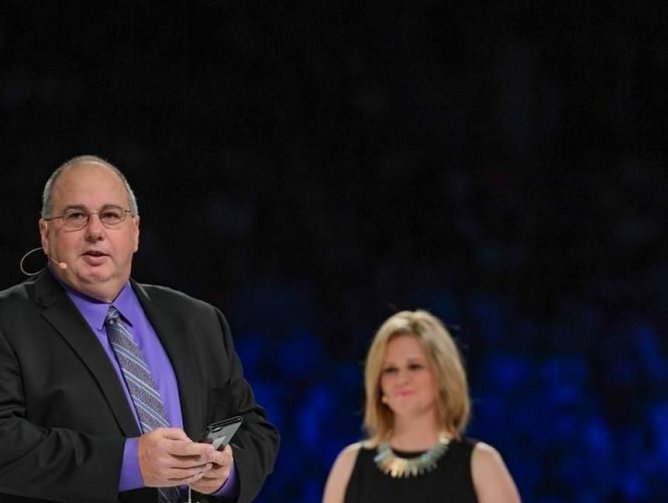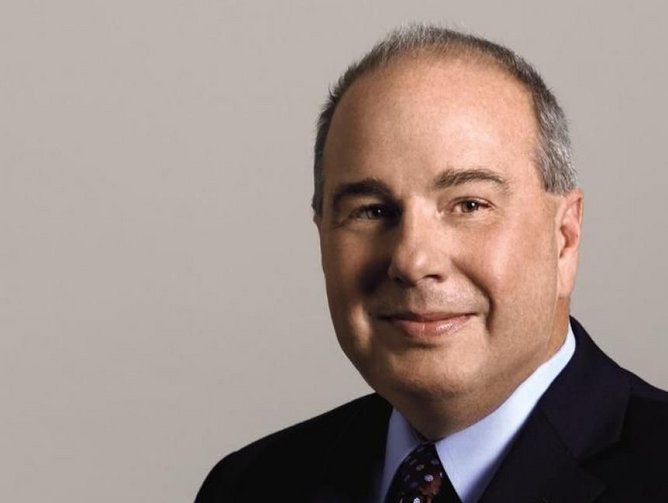By the time Petter Mørck died in 2008 he had seen the business that he founded in 1975 had grown from a small Swiss provider of personal health products to a global giant with its base in California since it moved there in 1980.
Today Arbonne International employs a direct workforce of some 800. However, its multi-level marketing (MLM) business model, whereby sales are effected through a network of independent consultants, makes it a lot bigger than this figure suggests. More than 250,000 franchised or licensed agents, each running their own business with the support of Arbonne testify to the success of that model in the marketplace.
Yes, a quarter of a million businesses in the United States, Canada, Europe, Australia and New Zealand are established to market Arbonne's range of health and nutritional products, made from natural, botanically-derived and pure ingredients. These products are 100 percent developed by Arbonne's scientists, the formulae are all Arbonne's own, and 50 percent of these products are manufactured in the company's own facilities. Mørck's vision was to make safe, high quality and natural health and wellbeing products available to the average person at affordable prices, and 'pure, safe and beneficial' remains Arbonne's ethical mantra.
Servicing the orders from so many consultants, each with a greater or smaller number of his or her own customers, is probably the most business critical part of a very large back office environment that includes all the usual business functions, as well as the supply chain for a complex manufacturing operation from procurement through to global distribution. Juggling all these balls is the challenge for Arbonne's IT department, under the leadership of CIO Guy Thier.
Appointed in 2013, Thier had completed nearly 10 years as SVP at Bally Total Fitness where, combining the roles of CIO and COO he led an IT turnaround that saw operating costs cut by more than half. The two businesses operate on very different models, he admits; the one selling a service, the other a product; the one located in buildings, the other having very few physical assets. Nevertheless he saw it as a natural progression: “I wanted to work in an organization that really helped people to improve their life and their health.” With manufacturing operations and supply chain focused on stability and efficiency while sales and e-commerce require great flexibility and user experience, as well as the demands of product development, R&D and administration, it is like being the CIO of several companies at once, he adds.
Reporting to him directly are some 50 Arbonne IT specialists, while the team is augmented to about 150 people when partners working on the Arbonne account are included. As well as the USA, he has people working for him in India, Hungary and other European countries.
Partner Power
Back in 2013 the problem that cried out to be addressed may be familiar to CIOs. “In common with most MLM companies, a large percentage of sales occur toward the end of the month as people try to reach their targets, improve their ratings or maybe earn an incentive,” Thier reveals. “20 percent of our business comes in on the last couple of days in the month and the e-commerce platform we were using could not handle the spike in ordering. It would shut down, and everyone was very frustrated!”
To address this problem, a partnership was entered into with Thatcher Technology of Naperville Illinois, a specialist in MLM software, comprising the purchase of their e-commerce platform, genealogy and compensation management as well as some back office functions to support the call center. Following nearly two years of intensive customization and modification to meet Arbonne's business needs, the new platform was launched in March 2015. “We have a very tight relationship with Thatcher,” says Thier. “We have a daily call where we go over new requests and issues with their CEO and product development manager, so we really do work as a single virtual team involving key vendors, my own IT team and Thatcher.”
Among the key partners in this virtual team is Keste, Arbonne's Oracle EBS (E Business Suite) provider. Keste's role was to develop the integration between Thatcher, EBS and some other third party providers of functionality such as credit card processing, address identification and verification and sales tax. Keste was recognized as the Arbonne IT Strategic Partner of the Year for 2013 and continues to serve as a consulting partner. Throughout this transformation journey Thier relied on a few tried and tested consultants he had worked with over the years, singling out for special mention Keith Chiavetta, with Global Business Transformation Professionals (GBTP) who came in at an early change to help prepare the IT organization for change and to subsequently drive it forward. Also valued was the input of Jim Jacoby and Laurie Martinelli whose input into the app design process from the point of view of customer experience was invaluable.
International expansion
The new platform, apart from stabilizing sales from month to month so the system could cope with rapidly fluctuating levels of business traffic and support sustained growth, was selected to allow Arbonne to expand internationally. “We wanted additionally to be able to open for business in non-English speaking countries,” says Thier. In anticipation of exponential growth into new geographies, the greater part of the e-commerce platform has been moved to Amazon Web Services (AWS), a world-embracing suite of cloud-computing services that make up an on-demand computing platform. “Our level of business already scales fivefold at the end of the month, and with AWS within minutes we add five times the server capacity. The advent of cloud has been a great addition to our infrastructure!” Thier adds. AWS Auto Scaling now ensures that no matter how large or unexpected the spikes in sales demand may be capacity will be automatically increased to meet them.
The new system has delivered increasingly smooth month-end closes, the CIO reports, clearing the way for a rapid transition to introducing far greater flexibility in the market using the latest tools. “We began working towards a future where you are not tied to a website or to a laptop. These days there are many more innovative and creative ways of creating a shopping cart off a website whether with mobile device, Amazon Echo [the voice activated virtual assistant already available in the USA and being launched in the UK this year], Apple TV or a kiosk solution where you can have the personalized shopping experience of your choice but feeding the same compensation engine, the same genealogy structure. It's letting people shop wherever they are, on whatever device is to hand, and of course it opens up to a broader range of potential consultants.”
Arbonne consultants are already used to doing business in innovative ways. Some are intense users of social media. Typically they share with family, friends and followers the benefits they have personally had from using the products – that's how most of them start – and give them the twin opportunities of access to the products or of joining Arbonne. For them the company hosts more than 80,000 websites, and all the orders placed are processed through those consultants. “We also provide them with management tools to run their business,” says Guy Thier, “so each will have hundreds or even thousands of people below them. We have reporting tools that let them know how well their people are doing, and communication tools so they can e-mail their team.” He is also developing toolkits to help consultants purchase products on platforms like Facebook and Pinterest.
Multilingual, multichannel
So far, all Arbonne's business has been conducted in predominantly English, French or Spanish speaking regions, however this year the company is opening for business in Taiwan. Translation from and into Chinese has been a barrier. It's perhaps simple enough to render text in both languages but when it comes to interaction it gets a little harder, Thier confesses. “We have software that will take a person's address in Chinese and convert it to English or vice versa. And we have in-line translation tools in place so that any user can choose whether to see material in Chinese or in English.”
As people choose to shop in different ways it's a priority for Arbonne to create new channels. For example to make it easier for consultants to access their figures an Amazon Echo version of their portal will soon be released so they can simply ask for the statistics and receive a spoken answer – soon it will be possible to do that from a smartphone too. Asked whether frequent upgrades don't mean a lot of training, Thier replies that these apps are designed to be intuitive, “We try to build things in a way that you don't need training. The first mobile app we launched in May was provided the same information as the internet portal for consultants and we had zero training. In the first week we had 20,000 downloads of the app; now it's running with about 35,000 users and not a few problems have been reported.”
The company is poised for an era of rapid expansion, made possible by IT. For six years it had not moved into any new territories because of technology and language hurdles: now it is planned to move into at least five new countries over three years. The infrastructure is scalable, the model proven, and Petter Mørck's vision of passing a legacy to the great great grandchildren he will never know personally is becoming a reality.






